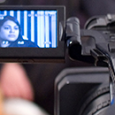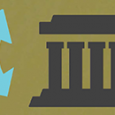Articles by Category
Articles by Issue
Recent Comments
- Stephen Brodsky on Harming Children: Uncovering and Overcoming Bias When Defending Sex Crimes Against Children
- Laura on Courtroom Attire: Ensuring Witness Attire Makes the Right Statement
- Members selection — Court-Martial Trial Practice Blog — February 22, 2014 on Why Do We Ask Jurors To Promise That They Will Do the Impossible?
- Video: Pryor Greed and Lawyers | Parents Rights Blog on Ethical Issues in Racial Profiling
- On the relationship between ideological and demographic diversity on Inaccuracy in Political Self-Perception: Young Adults Are Not as Conservative as They Believe
- Taylor Bishop on Tips for Preparing the Expert Witness
- Thanks for stopping by…. « The Jury Room on Book Review- Social Media as Evidence: Cases, Practice Pointers, and Techniques
- Thanks for stopping by…. « The Jury Room on Book Review: The Juror Factor: Race and Gender in America’s Civil Courts
Jury Experiences Archive
-
Understanding the Traumatized Witness
by Lorie Hood, M.S.Posted on April 15, 2016 | 1 CommentOne of the biggest challenges lawyers face is witness examination. You know your job, you have done the preparation and yet, somehow, at some point, your witness seems to transform right in front of your eyes. You know the story. Witness “X” has presented in your office as thoughtful, credible, […] -
Does Deposition Video Camera Angle Affect Witness Credibility?
by Chris Dominic, MA and Jeffrey W. Jarman, Ph.D. and Jonathan M. Lytle, Ph.D.Posted on May 31, 2015 | 15 CommentsDo different camera angles during deposition affect how observers will assess the credibility of the witness? Take a look at this research! -
Jury Instructions: Work In Progress
by Steven E. Perkel, DSW, LCSW and Benjamin PerkelPosted on May 31, 2015 | 2 CommentsIs plain language an important factor to consider in a jury charge? Yes. Here's a look at the latest knowledge. -
Why Do We Ask Jurors To Promise That They Will Do the Impossible?
by Susan MacphersonPosted on February 6, 2014 | 17 CommentsStop asking jurors to do the impossible! -
Strategies for More Effective Voir Dire
by Ronald J. Matlon, Ph.D.Posted on August 1, 2013 | No CommentsAll potential jurors have biases and prejudices. Individual bias stems from all we experience, and shapes the perceptions we, as jurors, have of evidence. These perceptions can certainly influence final jury verdicts.[1] Identifying juror bias is critical. Yet, “the detection of juror bias is a serious challenge in contemporary jury […] -
Getting Beyond “Can You Be Fair?”: Framing Your Cause Questions
by Ken Broda-Bahm, Ph.D.Posted on August 1, 2013 | 2 CommentsThis scenario happens at some point in nearly every voir dire. First, a juror reveals a bias for or against one of the parties. Juror: I just really don’t trust big companies. What with all the media stories and all the scandals, well, I just think that they are in […] -
The “Why” and “How” of Focus Group Research
by Douglas Keene, Ph.D.Posted on August 1, 2013 | 3 CommentsWhy focus groups? Properly conducted focus groups are extremely useful in getting reactions to a wide array of aspects of the case. While it is not prudent to expect that the “verdict” of a small group research project will be repeated at trial, it is very likely that the same […]
![Top 10 Most Accessed Articles of 2015 Every year we identify the top 10 articles chosen by our readers as most interesting in the calendar year. This year these articles are our top ten. Have you missed any of them? This is your chance to catch up! Does Deposition Video Camera Angle Affect Witness Credibility? By Chris […]](https://www.thejuryexpert.com/wp-content/uploads/TopTen2015_thumb.png)
![Understanding the Traumatized Witness One of the biggest challenges lawyers face is witness examination. You know your job, you have done the preparation and yet, somehow, at some point, your witness seems to transform right in front of your eyes. You know the story. Witness “X” has presented in your office as thoughtful, credible, […]](https://www.thejuryexpert.com/wp-content/uploads/trauma-201x130.png)





![Strategies for More Effective Voir Dire All potential jurors have biases and prejudices. Individual bias stems from all we experience, and shapes the perceptions we, as jurors, have of evidence. These perceptions can certainly influence final jury verdicts.[1] Identifying juror bias is critical. Yet, “the detection of juror bias is a serious challenge in contemporary jury […]](https://www.thejuryexpert.com/wp-content/uploads/effective-voir-dire-thumb-115x115.png)
![Getting Beyond “Can You Be Fair?”: Framing Your Cause Questions This scenario happens at some point in nearly every voir dire. First, a juror reveals a bias for or against one of the parties. Juror: I just really don’t trust big companies. What with all the media stories and all the scandals, well, I just think that they are in […]](https://www.thejuryexpert.com/wp-content/uploads/framing-cause-questions-thumb-115x115.png)
![The “Why” and “How” of Focus Group Research Why focus groups? Properly conducted focus groups are extremely useful in getting reactions to a wide array of aspects of the case. While it is not prudent to expect that the “verdict” of a small group research project will be repeated at trial, it is very likely that the same […]](https://www.thejuryexpert.com/wp-content/uploads/focus-group-115x115.png)